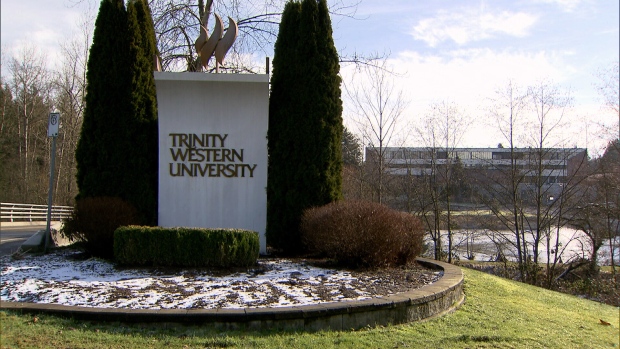TWU decision ‘undermines’ freedoms: Archbishop
VANCOUVER (June 15, 2018) – Vancouver Archbishop J. Michael Miller, CSB, today released a statement expressing his disappointment with the Supreme Court of Canada’s ruling on the Trinity Western University law school.
I am saddened to see the Supreme Court of Canada’s Trinity Western University law school decision, with its potential to undermine freedom of religion, conscience, and association in Canada.
The decision runs counter to Canada’s tradition of balancing rights and freedoms, and the implications of this decision for constitutional freedoms in Canada are severe. I agree with the ruling’s dissenting justices, who pointed out that the decision “betrays the promise of our Constitution that rights limitations must be demonstrably justified” and that the law societies’ powers are not absolute with respect to approving law programs.
Not only is freedom of conscience and religion a fundamental principle recognized in international human rights law, it is the first freedom guaranteed in the Canadian Charter of Rights and Freedoms.
In the 2001 TWU teachers college ruling, the Supreme Court respected the country’s social and legal tradition of attempting to balance competing rights, rather than giving preference to one right over another. With this decision, the court has moved away from our historic tradition of reconciling competing rights, and closer to a prioritization of rights, essentially ruling some are more important than others.
Perhaps more disturbing is that the court has undermined rights actually written in the Charter in favour of unwritten charter values.
The Court’s willingness to disregard the Charter of Rights and Freedoms means the threat of state influence expanding beyond its authority is increasing. The Court is allowing governments and government-mandated regulators to decide which beliefs and values are favoured in society, narrowing pluralism and freedom of conscience, beliefs, and thought in a serious way.
I believe the Court has erred in breaking with precedent, threatening fundamental human rights in Canada. I remain confident that our social and legal tradition will continue to affirm the conscience and religious rights of all Canadians and the ability of all to participate in the civil life of society.
In light of the limited scope of this ruling, I look forward to future decisions that respect and uphold the clear and broad protections of conscience and religious freedom that are a bedrock of Canadian law.
More information: Communications Director Paul Schratz, pschratz@rcav.org

